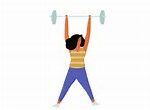Sleep disorders are a common struggle in recovery from addiction
Guest blogger, Alisa, Nestmaven.com
According to a study in the Journal of Addiction Medicine, the incidence of insomnia is five times higher in early recovery than in the general population. Insomnia is not the only sleep disorder associated with addiction; contribute to the development of circadian rhythm disorders, parasomnias and sleep apnea.
The relationship between sleep and addiction goes both ways: while the mechanisms of addiction and withdrawal cause sleep disorders, the resulting sleep deprivation can inhibit the recovery process. The consequences of sleep deprivation include low mood, impulsivity, and poor emotional regulation which increase the likelihood of relapse.
The SMART Recovery approach can be used to identify areas in your life where you are lacking balance. If you are experiencing sleep issues while recovering from an addiction, making changes in your lifestyle and environment can dramatically improve your symptoms.
Light Exposure
 Light is the most powerful cue for our circadian rhythms which are responsible for guiding the sleep-wake schedule.
Light is the most powerful cue for our circadian rhythms which are responsible for guiding the sleep-wake schedule.
Timing light exposure for the correct times of day, while avoiding unnecessary light sources as bedtime approaches. Basking in light — especially sunlight — first thing after waking up can help combat sleep inertia; while dimming house lights in the evening signals that it’s time to start winding down for sleep.
Blue light is emitted by electronic device screens (including computers, laptops and smartphones) and is responsible for blocking the release of the sleep hormone melatonin. These devices should be avoided at night, and, when their use is necessary, nightmode should be activated.
Light Therapy is used to treat circadian rhythm disorders and insomnia, the two disorders with the highest incidence in recovery. Light therapy is also a useful tool in treating the depression which frequently occurs alongside drug addiction.
Diet
Diet, while an important part of any healthy lifestyle, lends additional benefits to those struggling with sleep disorders.
Foods that inhibit sleep include those high in sugar and refined fats, as well as spicy foods and chocolate depending on its caffeine content. People suffering from sleep disorders should avoid these foods, particularly after midday.
Foods that promote sleep do so by either inducing drowsiness or through inducing muscle relaxation to relieve discomfort. Experts recommend natural sources of magnesium, potassium and B vitamins such as legumes and leafy green vegetables. Dairy products and animal proteins contain tryptophan — a precursor to the neurochemicals serotonin and melatonin which are essential to sleep.
The timing of meals is just as important as their content. It’s recommended to avoid eating — especially large, heavy meals — late at night as it can make falling asleep difficult. Additionally, consuming regularly spaced meals and snacks throughout the day can help prevent dips in energy level.
Exercise
 Both physical and mental exercise play an important role in regulating circadian rhythms and increasing relaxation.
Both physical and mental exercise play an important role in regulating circadian rhythms and increasing relaxation.
Studies have shown that performing aerobic exercise 3-4 hours before bed has the greatest effect on sleep: reducing sleep latency and increasing overall sleep time. A short workout of 15-30 minutes per day is sufficient to see an effect.
Meditation is exercise for the mind and with consistent practice has been proven to reduce stress and promote restful sleep. One popular form of meditation, called mindfulness, focuses on bringing attention to the present moment and foster a nonjudgmental mentality.
Sleep Environment
The bedroom environment should be designed in a way to promote comfort and relaxation, while simultaneously reducing factors which inhibit sleep.
Bedding should be selected to fit each individual’s needs. One must consider sleep position, weight and physical complaints when choosing a mattress and pillows. It’s likewise important to replace items within the recommended time frame to ensure that the body is properly supported during sleep.
Temperature plays an important role in circadian rhythms. During the night, body temperature drops to its lowest point, before steadily rising again by morning. Setting the thermostat lower at bedtime (around 60 – 70 degrees Fahrenheit) promotes more restful sleep.
Noise at night, particularly for light sleepers, can make it difficult to drift off and stay asleep. Even when not consciously perceived, environmental sounds can cause restlessness. White noise can be used to dampen these sounds, whether played through a dedicated machine or a mobile application.
Colors have influence over mood and energy levels. Research indicates that those who sleep in a blue colored room tend to get more sleep and wake up feeling more refreshed. Experts recommend choosing a color scheme which instills an atmosphere of calm in the bedroom.
Bedtime Routine
According to leading sleep specialists, maintaining a bedtime routine is one of the most effective strategies for combatting insomnia and promoting quality sleep.
A relatively set sleep-wake schedule should be adhered to every day (weekends included). This allows your circadian rhythms to adjust to a regular pattern, preventing desynchrony that results in sleep disorder.
Reserve the bedroom for sleep and intimacy only. Sleep experts warn against using the bedroom for other activities as these habits can inhibit the association between the space and sleep.
A bedtime routine including relaxation helps make the transition from a state of wakefulness to sleep more natural. Recommended activities include yoga and meditation, as well as simple comforts such as taking a hot bath or reading a story.
It’s important to discuss your sleep issues with your doctor and others in your recovery support system to ensure your needs are being properly addressed. Better sleep leads to healthier living, and better empowers you to take the steps towards sobriety.
Alisa is the editor in chief at Nestmaven.com where she writes about all things sleep related – from how to improve your sleep hygiene, how to find the best mattress or tips on sleep meditation techniques. She has a Bachelor of Honors in Information Science, loves yoga, healthy food and chocolate (and is totally fine with that contradiction).
![]() We invite SMART-related blog entries from all interested readers. Entries should have strong pertinence to SMART. Queries are welcome. Send manuscripts or queries to blog@smartrecovery.org
We invite SMART-related blog entries from all interested readers. Entries should have strong pertinence to SMART. Queries are welcome. Send manuscripts or queries to blog@smartrecovery.org

